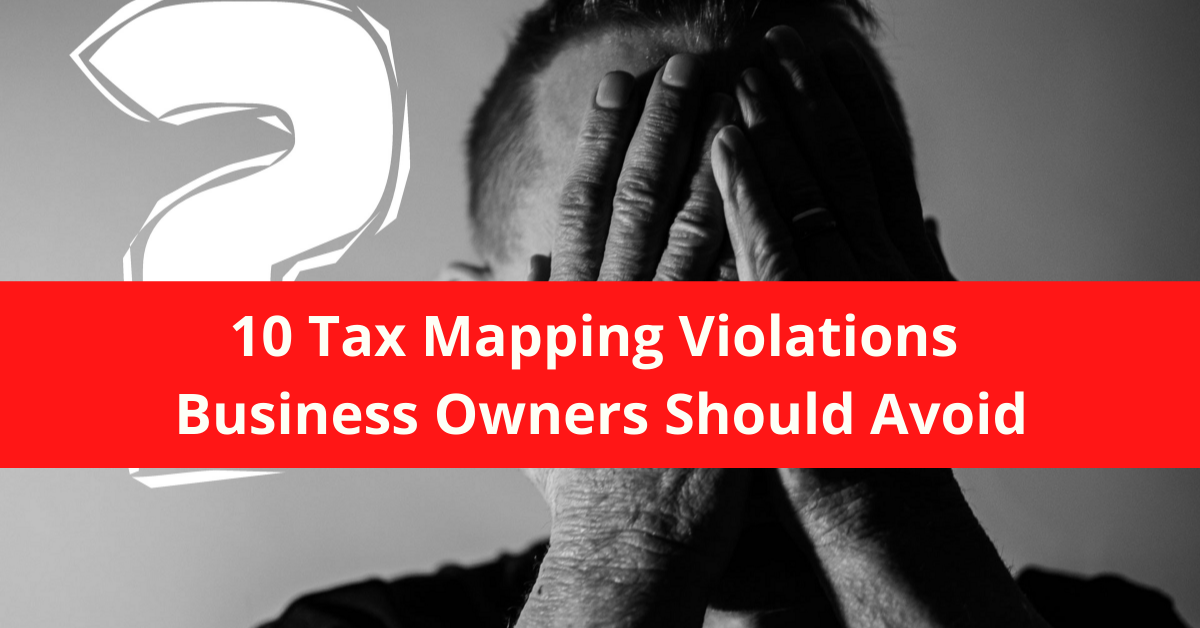10 Tax Mapping Violations Business Owners Should Avoid
Whether you are a large corporation or Micro, Small, and Medium Enterprises (MSMEs), you have to go through the BIR’s Tax Compliance and Verification Drive or Tax Mapping, as it is popularly known to many.
Tax mapping is a regular inspection of business establishments to determine their compliance with registration, bookkeeping, and invoicing regulations of the Bureau of Internal Revenue (BIR).
Business owners who are violating or not complying with the BIR rules will be penalized from P1,000 to P50,000, depending on the nature of the violation.
Some violations may lead to business closure, criminal charges, and imprisonment.
The bureau conducts tax mapping activity unannounced and identifies taxpayers and taxpayers’ locations randomly. If you want to prepare for BIR’s visit and avoid penalties, you should not commit these ten common tax mapping violations.
10 Common Tax Mapping Violations
After the tax mapping visit, the BIR personnel will give you a report on his findings. If you have violated some provisions, you should pay the compromised penalties as mentioned in Revenue Memorandum Order 7-2015.
So, what are the common violations? What are your remedies and legal basis to challenge the alleged violations?
REGISTER
1. Failure to display the annual registration fee for the current year inside the business establishment (BIR Form 0605)
Payment of the annual registration fee is made on or before January 31 of each year. (Reference: RR 7-2012, Section 8)
2. Failure to register the business to BIR
Business must register to BIR 30 days from the issuance of Mayor’s Permit, 30 days from the issuance of SEC Certificate (for partnership or corporation), or before the first sale transaction. (Reference: RR 7-2012, Section 4)
3. Failure to display the Certificate of Registration inside the premises of the registered place of business (BIR Form 2303)
4. Failure to display the “ASK FOR RECEIPT” signage inside the business establishment.
INVOICING
5. Failure to issue receipt/invoice
Per NIRC, Section 237, as amended, effective January 01, 2018, business establishments are required to issue BIR-registered official receipt or invoice for every sale transaction amounting to P100 or more.
6. Refusal to issue receipt/invoice.
Example – Sale transaction of P100 or more and the client/buyer ask for an official receipt/invoice, but you did not issue the document.
7. Unregistered receipt/invoice
There are three receipts/invoices under the NIRC. For these documents to become official records, business owners should apply for Authority to Print (ATP), using BIR Form 1906. You can find the documentary requirements under Revenue Memorandum Circular (RMC) 57-2020.
-
- Official Receipt – issued for the sale of services
- Sales Invoice – given for the sale of goods
- Commercial Invoice – supplementary documents, e.g., Order Slip, Delivery Receipt, etc.
BOOKKEEPING:
8. Failure to maintain the books of accounts at the registered place of business
Books of Accounts should be updated and kept inside the premises of the business establishment.
9. Failure to register the books of accounts
Your business journals and ledgers should be registered to BIR using BIR Form 1905. The first page of each book is rubber-stamped, with a control number and duly signed by the RDO.
10. Failure to make daily entries in the books of accounts
Revenue Regulations V1 specifies that the deadline for recording the transaction to the books of account is seven days from the transaction date.
Knowing and avoiding these common tax mapping violations will save you a considerable sum of money that could be used to finance other projects of your business.
How can we help you?
Do you need help with your BIR registration or have questions about your tax compliance? We’d be happy to assist you. Email us at info@djkaaccounting.com for inquiries.
Recent Posts
- New Features and Functionalities of the Online Registration and Update System (ORUS)
- A Comprehensive Guide to Taxation for Freelancers in the Philippines
- New Tax Laws in 2024: What Changes Filipino Taxpayers Should Prepare For
- How to Avoid Common Tax Mistakes in 2024
- Tax Deductions and Benefits Often Overlooked by Filipino Taxpayers





